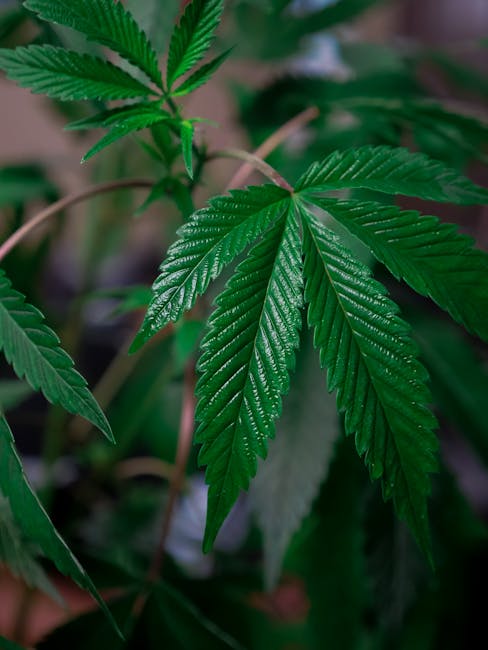Sweden, a country known for its strict laws and regulations, has a complex relationship with cannabis, particularly THC weed. THC, or tetrahydrocannabinol, is the psychoactive compound found in cannabis that produces a “high.” In this article, we’ll explore the current laws surrounding THC weed in Sweden, the risks associated with its use, and the ongoing debates about its legalization.
Current Laws in Sweden
In Sweden, cannabis is classified as a narcotic substance, and its use, possession, sale, and production are regulated by the Narcotic Drugs Act (SFS 1968:64). The law categorizes cannabis as a “Schedule I” substance, indicating a high potential for abuse and no accepted medical use. However, there are some exceptions for medical cannabis, which can be prescribed by a doctor for certain conditions.
The penalties for cannabis-related offenses in Sweden vary depending on the severity of the crime. For minor offenses, such as possession of small amounts for personal use, the punishment can range from fines to imprisonment for up to six months. More serious offenses, like trafficking or production, can result in longer prison sentences, ranging from a few years to life imprisonment.
Medical Cannabis
Sweden has a limited medical cannabis program, which allows patients with certain conditions to access cannabis-based treatments. To qualify, patients must have a condition that is considered severe and have tried other treatments without success. The Swedish Medical Products Agency (MPA) is responsible for evaluating applications and granting approval for medical cannabis.
Risks Associated with THC Weed
Using THC weed can pose several health risks, particularly for heavy or long-term users. Some potential risks include:
- Cognitive impairment: THC can affect memory, concentration, and decision-making.
- Mental health issues: Cannabis use has been linked to an increased risk of psychosis, depression, and anxiety disorders.
- Dependence and addiction: THC can be habit-forming, and some users may develop a dependence on it.
- Respiratory problems: Smoking cannabis can lead to respiratory issues, such as bronchitis and lung infections.
Debate on Legalization
The debate about legalizing THC weed in Sweden is ongoing. Proponents argue that legalization could reduce crime, generate tax revenue, and allow for better regulation and quality control. They also point to the potential medical benefits of cannabis.
Opponents, however, are concerned about the potential risks associated with cannabis use, particularly among young people. They argue that legalization could lead to increased use and abuse, as well as negative impacts on public health and safety.
THC weed remains a controlled substance in Sweden, with strict laws regulating its use, possession, sale, and production. While there are some exceptions for medical cannabis, the risks associated with THC weed use are a concern. The debate about legalization continues, with proponents and opponents presenting their arguments. As the discussion evolves, it is essential to consider the potential consequences of any changes to Sweden’s cannabis laws.
Current Trends and Statistics
Despite the strict laws, cannabis use is relatively common in Sweden. According to the European Monitoring Centre for Drugs and Drug Addiction (EMCDDA), Sweden has a lower prevalence of cannabis use compared to other European countries. However, there is a growing trend of cannabis use among young people, with approximately 15% of 15-16-year-olds reporting having used cannabis at least once.
Black Market and Organized Crime
The illegal cannabis market in Sweden is significant, with a substantial portion of the cannabis consumed in the country being smuggled in from other European countries. This has led to concerns about organized crime and the involvement of criminal gangs in the cannabis trade. Law enforcement agencies in Sweden have been working to combat cannabis trafficking and production, with some success.
Potential Economic Benefits of Legalization
One of the arguments in favor of legalizing THC weed in Sweden is the potential economic benefits. A study by the Cannabis Industry Association estimated that a regulated cannabis market in Sweden could generate significant tax revenue and create new job opportunities. Additionally, legalization could also lead to a reduction in the costs associated with enforcing cannabis prohibition.
Public Opinion and Future Developments
Public opinion in Sweden is shifting in favor of legalizing cannabis, with a growing number of people supporting reform. In 2020, a survey conducted by the Swedish public broadcaster SVT found that 53% of respondents supported legalizing cannabis, while 41% were opposed. As public opinion continues to evolve, it is possible that Sweden may reconsider its cannabis laws in the future;
International Comparisons
Sweden is not alone in its debate about cannabis legalization. Many countries around the world are reevaluating their cannabis laws, with some opting for legalization or decriminalization. Countries like Canada and Uruguay have already legalized cannabis, while others, like the Netherlands, have a more relaxed approach to cannabis use.






It\
The article provides a comprehensive overview of Sweden\